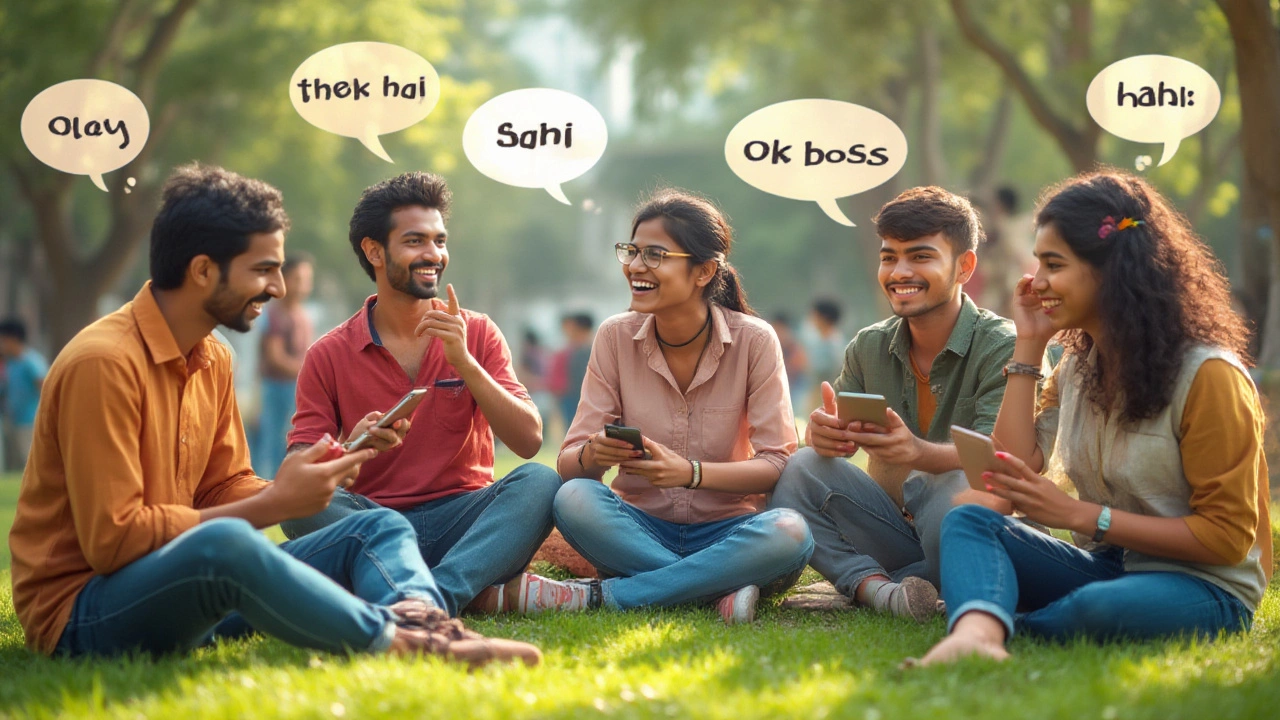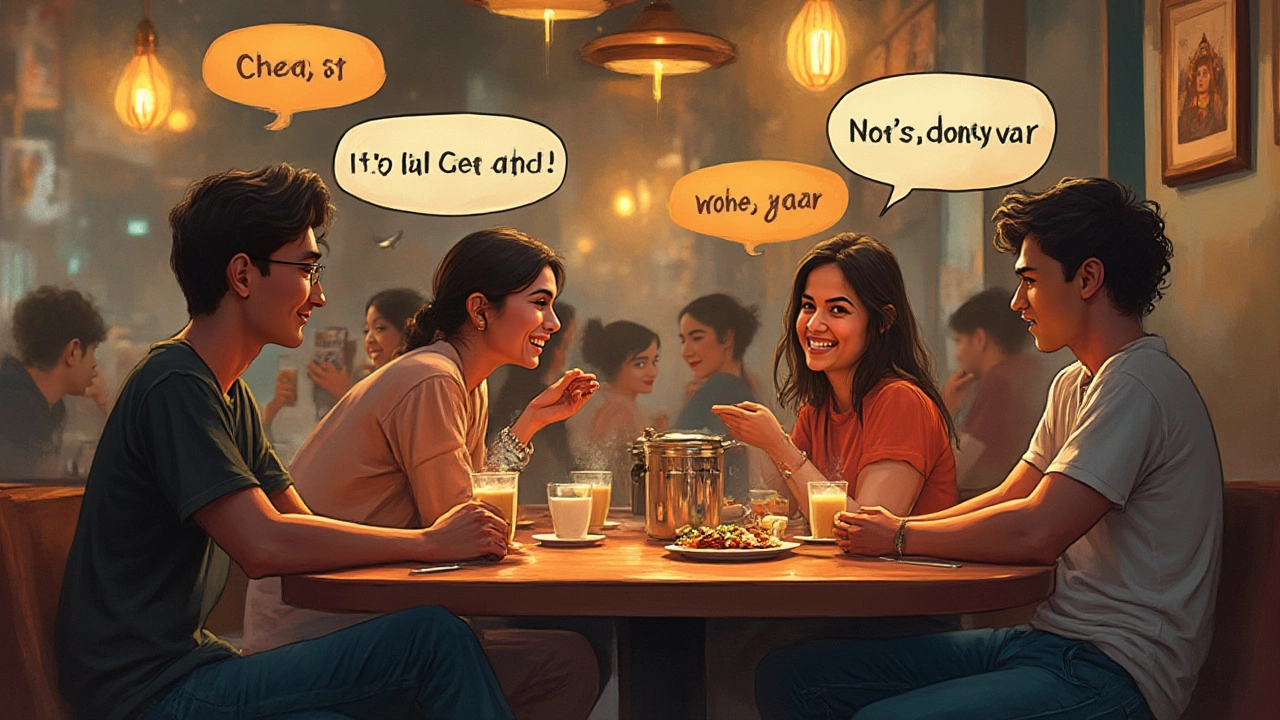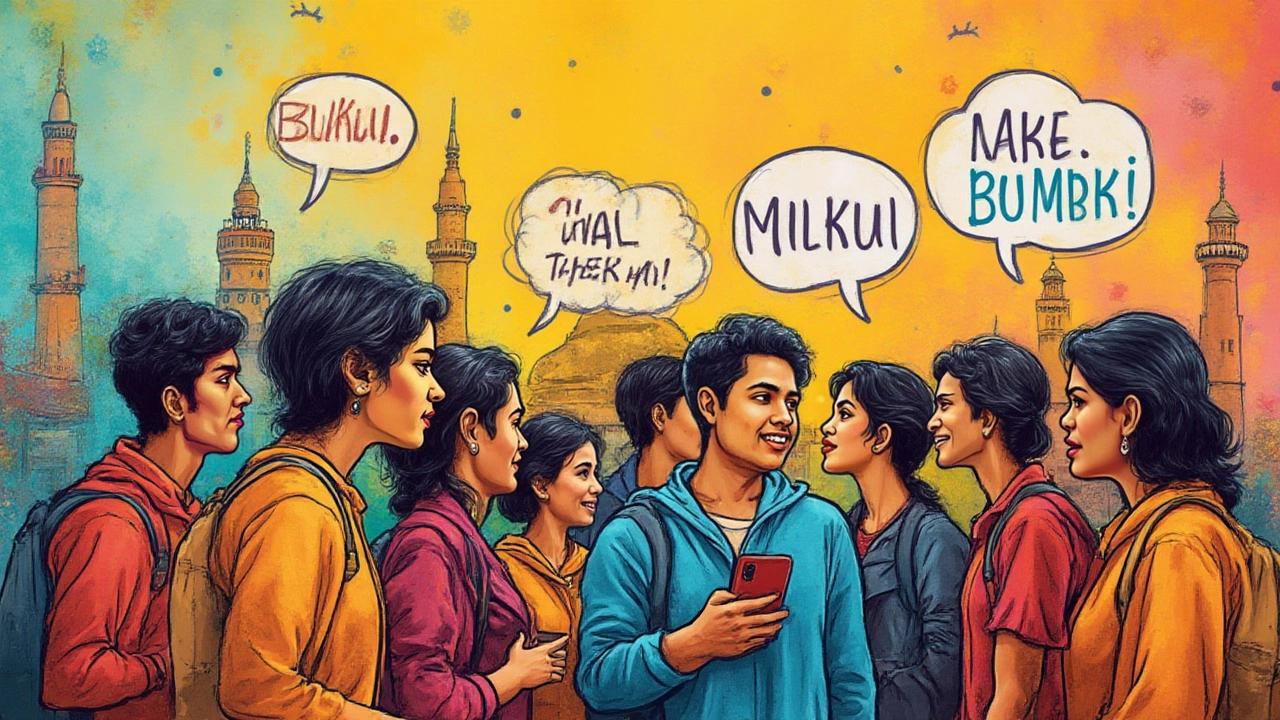Popular Indian Slang for Okay and What It Really Means in Daily Life

Ever been in a conversation with an Indian friend and heard a simple word that didn’t sound like your regular “okay”? You might have caught a “theek hai,” a “haan,” or even a casual “accha.” These words, scattered through calls, texts, and banter, do the heavy lifting of “okay” in Indian English—but with a twist most outsiders miss. If you’re a foreigner new to India, or just a language lover, understanding Indian slang for “okay” is like unlocking a secret code. It turns a formal chat into a friendly one, helps you fit in, and gives you insider cred. Let’s break down what these words mean, where they come from, and how folks really use them in daily life.
The Many Faces of 'Okay' in Indian Slang
Walk into any room in India—North, South, big city, small village—and “okay” might greet you in more flavors than a street-side dosa cart. The word itself, “okay,” gets used plenty, but mostly among younger crowds and in business meetings. Step outside that setting, though, and a kaleidoscope of local lingo pops up. The most iconic is “theek hai” (ठीक है). It’s Hindi for “it’s fine” or “alright,” and Indians toss it around everywhere, from office halls to WhatsApp chats. Someone suggests grabbing chai at 4? “Theek hai.” Your mom asks if you fed the dog? “Theek hai.” Even as a sign-off, “theek hai” tells the other person, “I got it, we’re done here.”
Down South, “sari” or “seri” in Tamil does the same job—think of it as the brisk South Indian cousin of “theek hai.” “Achha” or “accha” (अच्छा) sounds like a question but does the round of both “okay” and “oh really?” depending on intonation. Someone says “accha?” with a rising tone, they’re surprised. Drawn out as “acchaaa,” it turns into a warm confirmation. There’s “haan” (हाँ), another Hindi word, that’s just “yes” but often gets used for “okay,” especially when you want to sound agreeable but non-committal. West India throws in its own: Gujaratis have “sarukar,” Punjabis drop “theek aa,” and Bengalis use “hya” or “besh.”
If you listen closely, you’ll find that some Indians even layer on their own style: “Okay ji,” “theek hai na,” “accha na,” or the urban “on” (as in “are we on?”). What’s fascinating is that these little tweaks carry loads of personality. There’s a difference between a grumpy “theek hai” from your boss and the cheerful “accha na?” from your best friend. It’s communication and emotion, all rolled into one. No handbook will cover it, but Indians pick it up from family, movies, and—lately—memes shared across social media.
Here’s a quick comparison table of popular “okay”s:
| Region/Language | Slang for 'Okay' | Literal Meaning | Typical Usage |
|---|---|---|---|
| Hindi (North India) | theek hai | it’s fine | Agreement, confirmation, closure |
| Tamil (South India) | seri | okay/good | Agreement, acceptance |
| Bengali (East India) | besh/hya | good/yes | Agreement, encouragement |
| Punjabi | theek aa | it’s okay | Informal agreement |
| Gujarati | sarukar | alright/okay | Casual acceptance |
| Everywhere (urban) | OK ji, Accha na | Okay, right? | Playful, friendly |
What’s even cooler? Many of these words play double duty. “Theek hai” isn’t just “okay”—it’s a way to gently end a chat, diffuse an argument (“theek hai, do what you want!”), or simply express, “I’m done talking.” If you’re learning Hindi, tossing in a well-timed “theek hai” makes even stiff textbook answers sound human.

Why 'Okay' in Indian English Feels So Unique
If you stop to ask an Indian why there are so many shades for something as basic as “okay,” you’ll hear stories about the diversity of India itself. The country is a patchwork of languages, and every language lends its own spice to daily talk. India has 22 official languages and over 120 spoken tongues, so people mix and match words. English, brought in by the British, took root but then started growing new branches. Indians use English not as-is but as “Indian English,” loved for its local color, innovation, and quirks. That’s why “okay” in India sometimes sounds like a remix of English and local flavor.
Here’s where it gets lively—intonation. The same word, “theek hai,” can be a loving nudge, a neutral checkmark, or a sarcastic jab, depending on how you say it. Say it flat, you’re just agreeing; add a sigh, and you’re done with the conversation. Sharper tone? You’re showing you’re annoyed but not saying it directly. Indians are experts at reading tone, context, and body language. This is why a foreigner can use the right words but still miss the hidden meaning.
Movies and pop culture, especially Bollywood, have taken these phrases global. Remember the famous “theek hai, chalo!” line from almost every Hindi family drama? Or the many memes that riff off “accha”? Bollywood celebrities drop “theek hai” in interviews and reels, making it the most “relatable” part of Indian communication. Watch a few viral videos, and you’ll soon start mimicking these lines yourself, subconsciously.
But there’s another layer—social hierarchy and relationships. In many Indian homes, a younger person won’t just say “okay” to an elder; they’ll upgrade it to “theek hai ji” (with that “ji” for politeness) or “accha aunty.” Tossing in an honorific or softener makes an everyday word feel respectful. In friend groups, the word gets flipped and played with—sometimes even shortened in texts to “tk” (“theek hai”), “okies,” or just the infamous thumbs-up emoji. Emojis, by the way, have joined the “okay” team, especially among millennials and Gen Z, but that’s a different universe to explore.
There’s a reason why Indian English was recognized for its unique words in the Oxford English Dictionary. “Prepone” or “timepass” might sound odd to outsiders, but for “okay,” it’s the local touch that shines. Linguists point out that Indians often soften their statements to avoid confrontations, so “theek hai” is safer and cozier than a blunt “okay.” It’s about keeping things smooth and friendly, even during a disagreement. You might even catch an Indian parent agreeing with “theek hai, but do what you want”—the classic sign there’s more to the word than meets the ear.
Practical tip—if you want to blend in, listen to the tone and watch people’s expressions. It’s rare for two “theek hai”s to mean exactly the same thing. And don’t be shy to try it out; Indians appreciate the attempt and won’t judge you for a little slip-up. Chances are, you’ll get an encouraging “besh!” or “accha hai” right back.

How to Use Indian 'Okay' Slang Like a Local
You don’t need to grow up in Delhi or Chennai to use Indian “okay” slang like a pro. But weaving these words into your talk, and especially using them in the right context, is what sets visitors apart from insiders. Here’s how you can get it just right.
- Start simple: Use “theek hai” at the end of a casual instruction or agreement. For instance, when your friend says, "Let's meet at 7?" reply, "Theek hai." It’s that easy. Don’t overthink it—even if your accent slips, it’s the effort that counts.
- Match the mood: Pay attention to tone. If you’re not sure, say it neutrally to begin with. Hear how others use it and follow their lead. Asking about dinner plans? Go for a friendly “accha.” Feeling casual? “Haan, theek hai” covers it all.
- Mix in context: In formal situations, especially at work, “theek hai” can balance politeness and agreement. In text chats, use “tk” or “ok ji” for a breezy sign-off. In family settings, add a “ji” for warmth and respect.
- Play with versions: South India? Try “seri.” In Mumbai, “thik hai na” is the go-to. Get to know the region, and their word for “okay” gives you instant local flavor.
- Watch and learn: Pay close attention on Indian TV, YouTube shorts, or Bollywood movies. Every dialogue is a learning lesson. Repeat them a few times, and they’ll stick.
The trick is not memorizing a list of words but noticing the rhythm and vibe of real conversations. Download Indian chat apps, join WhatsApp groups, or just hang out with Indian colleagues at work. Someone always drops a “theek hai,” and soon enough, you’ll find the phrase slipping into your speech, sometimes without even realizing it.
There’s more: these “okay” phrases travel across generations and situations. An office manager in Bangalore wraps up meetings with “seri,” while a college group texts “accha tha bro!” after a match. Everyone—from parents negotiating curfews to teens making weekend plans—leans on these versatile words. Even customer service calls have adopted slang: end a frustrated chat with “theek hai” and you might sense the shared tiredness on both sides.
Here’s an extra tip for visitors to India: if someone tells you “theek hai” but their voice sounds forced, double-check their real feelings. Sometimes it’s a polite way of saying “no” without conflict. Mastering this reading between the lines is the true level-up.
Languages and laughs go hand in hand. Among friends, “theek hai” gets used ironically, stretched for emphasis, or followed by playful emojis. Some friend groups chuckle about who can say it with the most exaggeration. Workplaces prefer quick, matter-of-fact usage to keep plans moving. Across the board, though, every version does what it promises—keeps things moving, avoids confusion, and adds a dash of local charm to otherwise dull conversations.
If you really want to sound like a local, try mixing “theek hai” into your next chat, adding it after instructions or in between story bits. Bonus points if you use the right emojis. Indians are among the top emoji users in the world, with the thumbs-up or “👌🏼” quickly replacing “okay” in millions of daily messages. But when texting an elder, ditch the emoji for a proper “theek hai ji”—it’s more respectful and way more Indian.
All said and done, the Indian slang for “okay” isn’t just a translation—it’s a social tool, a mood-setter, and an easy conversation-ender rolled into one. Pick it up, play around, and you’ll blend in faster than you expect. And if you ever fumble or someone corrects you with a laugh, just flash a grin and say, “theek hai.” It’ll work every time.